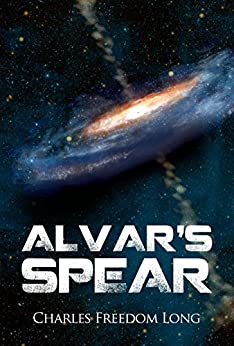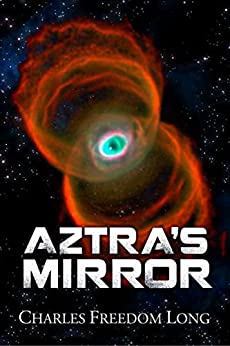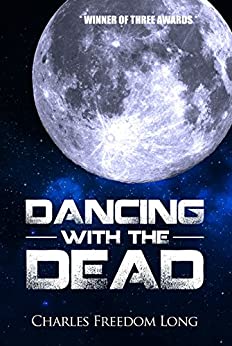Writers Inspiring Change feature author: Charles Freedom Long
- IWIC Admin

- Jan 29, 2023
- 3 min read
Updated: Apr 4, 2024

IWIC: Tell us about yourself.
Charles: I began writing poetry in grammar school. By the time I left college I managed to see two poems published. I did manage to support myself by working as a Technical Editor on the Apollo Project, and then, as a Research Assistant at NYU Medical Center’s Institute of Rehabilitation Medicine, where I first got involved in health and human services. That led me back into school, graduate school and into a series of cross-country, cross-border, overseas, and third world expatriate work and living adventures in Canada, England, West Africa, four states and two regions in the U.S. I learned how differently other people live life and view the world. How much what we assume is reality, and “the way things are,” is very different from what others assume. After all this travelling and living in foreign cultures, particularly the third world, I find science fiction is a natural place for me to write, since its boundaries of imagination are limitless. A recurrent theme in my writing is “It ain’t necessarily so.” I write to challenge readers’ fixed ideas in a way that will make them consider other possibilities.
IWIC: What do your readers like about your writing? Charles: Based on the reviews and comments I’ve gotten, I think it’s the uniqueness. The concepts surrounding the dead, the detailed physical and sociological descriptions of aliens and alien cultures, the philosophical and moral questions woven into the stories.
IWIC: Is there a message weaved into your writing? Charles: I write science fiction about what might be. Psionics, aliens and other worlds, awareness and ongoing communication between the living and the dead as a fact of daily life, and how that might affect the life and philosophy of a world. I’m a retired psychologist, an ex-monk, and a medium. I talk with deceased people all the time. After years of seeing the dead portrayed in countless fatuous ways, I decided it was time for someone to show them in a manner some might consider more truthful. That is, life continues beyond the change we call death, the personality survives passing beyond the earthly life and moves on into other dimensions. And truly civilized cultures integrate the dead into the society.
IWIC: What is it that you want to inspire in others or change in the world through your writing? Charles: By asking the “what if” questions, by exposing “alien” cultures and mores, I give my readers the ability to think outside the psychological and social boxes they’ve been placed into, to ask “what if” and then act on it, to be the change they want to see in the world.
IWIC: Tell us about your most recent book and why you wrote it. Charles: In 1961, in his Hugo Award winning novel, A Canticle For Leibowitz, Walter M. Millar boldly stated, “You don’t have a soul, Doctor. You are a soul. You have a body, temporarily.” My new work, Alvar’s Spear, asks the question, “What if planets were the bodies of sentient beings?” It takes on the theme of sentience, in addition to the theme of destiny versus free will that ran through its prequel, Dancing With The Dead. “What if” planets had emotions? Desires? Just like us? “What if” sentience were more wide-spread than we think? What then? So… thirty years after dancing with the dead, half-Terran, half-Antal, Gar has just one desperate last chance to save the Antal hive from immolation at the hands of its own mother, the sentient moon-world, Alvar. He must do this before a mutant conspiracy turns Alvar into a fetid swamp, and enslaves the Antal. Alvar has sworn to hurl herself into the gas giant she orbits before she allows that to happen. To become Alvar’s Spear, the planetary savior, Gar must confront enemies, assassins, a traitor, and a beautiful, brilliant Terran geneticist. He must travel into the mysterious Forbidden Mountains of the vild, from which no one has returned. If successful, he will save Alvar. But the danger of creating a savior is that he will be his own person. He will do what he will, and whether his acts are judged good or bad will only be known in the unrolling of time. Time is not on Gar’s side. But time does unroll. What it reveals may not be to everyone’s liking.















Comments